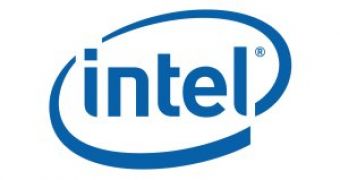Intel and Advanced Micro Devices are bringing new weapons in their conflict as the two companies are preparing to launch yet another round of competing lines of products. As AMD is pricing its entire line of central processing units at a lower level than just about everything that is Intel made, the smaller company recently gained some more marker share from its competitor, but things may get ugly real fast as Intel prepares its own low pricing strategy while advancing a whole new range of processors.
Intel chairman Craig Barret told in an interview that his company is preparing to regain the lost market share and that the overall situation looks good. While the Intel chairman did not comment about the company's financial outlook or about the projected market demand for its upcoming line of processors and chipsets, he did say that they are ''in a very strong competitive position vis-a-vis AMD''.
As the company released some time ago a very optimistic financial outlook, in which Intel claimed that it will register revenues of around $9.8 billion for this quarter, marking an increase of about $400 million over the previous estimates, Craig Barret may be right in saying that Intel is regaining its market share from AMD. During the price war that took most of the summer Intel was forced to cut price tags all over the board and most of its older generation products are now available for a small price, but even so they are considerably more expensive than similar offerings from its competing company.
Intel still has a very strong market position despite the fact that AMD is doing everything it can to counteract it and this is visible on the ascending trend of Intel shares that have risen about ten percent over the course of the past three months, while AMD's own shares went down with around three percent.
As the computer hardware manufacturing company is doing business on a global scale, the recent trends that can be seen in the United States economy are not affecting it too much. "The bulk of our business is outside the United States...The growth of our business is predominantly in emerging markets," Barrett said and he was cited by the news site zdnet. "If there (were) a worldwide slowdown, that would be a concern to us. But most of the dialogue has been on the U.S."

 14 DAY TRIAL //
14 DAY TRIAL //